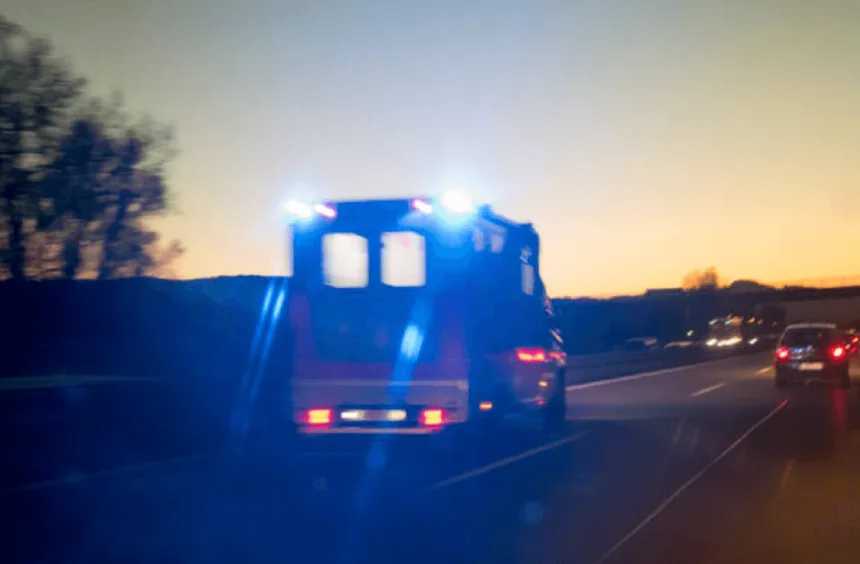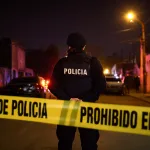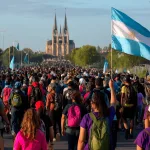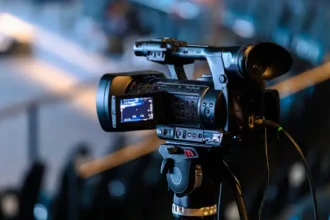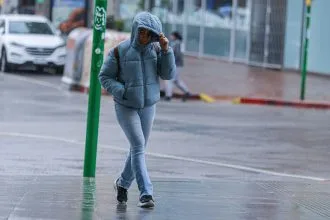The medical emergency in Salto occurred on Friday afternoon, when an 85-year-old woman was injured after a fall at a relative's home. The patient is a member of a mutual health insurance company in Montevideo and, under the regulations, can receive emergency care from a local provider.
Relatives contacted the Salto Medical Center to request home care. The institution responded that the law does not provide for home care under these conditions and that the protocol requires other means. This refusal led to further efforts to obtain coverage.
At the same time, relatives filed a police report. Officials documented the lack of medical response and contacted the local hospital , which, according to the report, indicated that the case did not fall within its scope of care at the time.
After the two refusals, the police informed the on-duty prosecutor's office. The prosecutor's office ordered the octogenarian to receive some form of immediate medical care. While she waited, officers assisted with basic first aid on the scene.
After more than two hours , the Medical Center sent a vehicle with medical personnel. According to the report, the Prosecutor's Office warned that a further refusal could constitute a denial of care, which accelerated the team's dispatch.
The operation involved personnel from the Salto Medical Center and officers from the PADO Unit, who secured the scene and coordinated the entry of the ambulance into the home. No additional incidents were reported.
Medical emergency in Salto: timing, coverage, and response circuits
The medical emergency in Salto highlights three elements: response times from the first call, the institutional interpretation of coverage, and coordination between the police, providers, and the Prosecutor's Office. In practice, families seek quick solutions because pain, reduced mobility, and fear of further injury complicate their daily lives. No one wants to be left without care, especially when advanced age is involved.
The regulations allow emergency care from a local provider when the person is affiliated with a mutual insurance company in another city. However, the "home" format may depend on internal protocols, mobile availability, and risk criteria. This is where operational gaps often arise: who sends the team, how the transfer is financed, and which professional performs the initial clinical evaluation.
For families, these delays mean stress and lost time. Some depend on odd jobs or daily work and end up spending several hours without being able to leave the house, organizing calls and transportation. Clear information helps reduce anxiety and avoid unnecessary expenses.
In cases of falls involving older adults, clinical manuals recommend immobilization, monitoring the patient's level of consciousness, and avoiding maneuvers that could aggravate possible fractures. The general recommendation is to request formal medical support and, if necessary, arrange for ambulance transport. The police role, as occurred here, is to secure the surrounding area and document the incident.
Actions and information framework
For questions about rights and care options, the Ministry of Public Health publishes useful references on urgent and emergency situations on its official website: https://www.gub.uy/ministerio-salud-publica/ . On our website, you can find more information on the guide to health care user rights and administrative complaint options (internal link: /salud-uruguay-derechos-usuarios ).
Case follow-up will be the responsibility of the institutions involved. The key will be to review procedures to reduce response times, fine-tune inter-institutional coordination, and provide clear information to patients and their families. In a city like Salto with short distances and diverse realities, logistics are crucial for ensuring timely delivery of assistance.






